Abstract
Studies were conducted to determine the effectiveness of propylene oxide (PO) treatment in controlling the microflora of pecans. As used commercially, PO has little effect on internal bacteria and fungi in pecan halves. Tests of surface washings of commercially treated pecans showed a reduction of 96% in coliform bacteria following PO treatment. Under controlled laboratory conditions, PO gave 80 to 92% reduction of surface microflora and at least 64% reduction of internal flora, but neither bacteria nor fungi could be eliminated completely, even with high dosages. Current assay methods for determining bacterial content of nutmeats were shown to be inadequate because they utilize only surface washings and thus do not give an accurate picture of the total bacterial population of the nutmeat. Consequently, such assays do not permit an accurate assessment of any potential health hazard related to these organisms.
Full text
PDF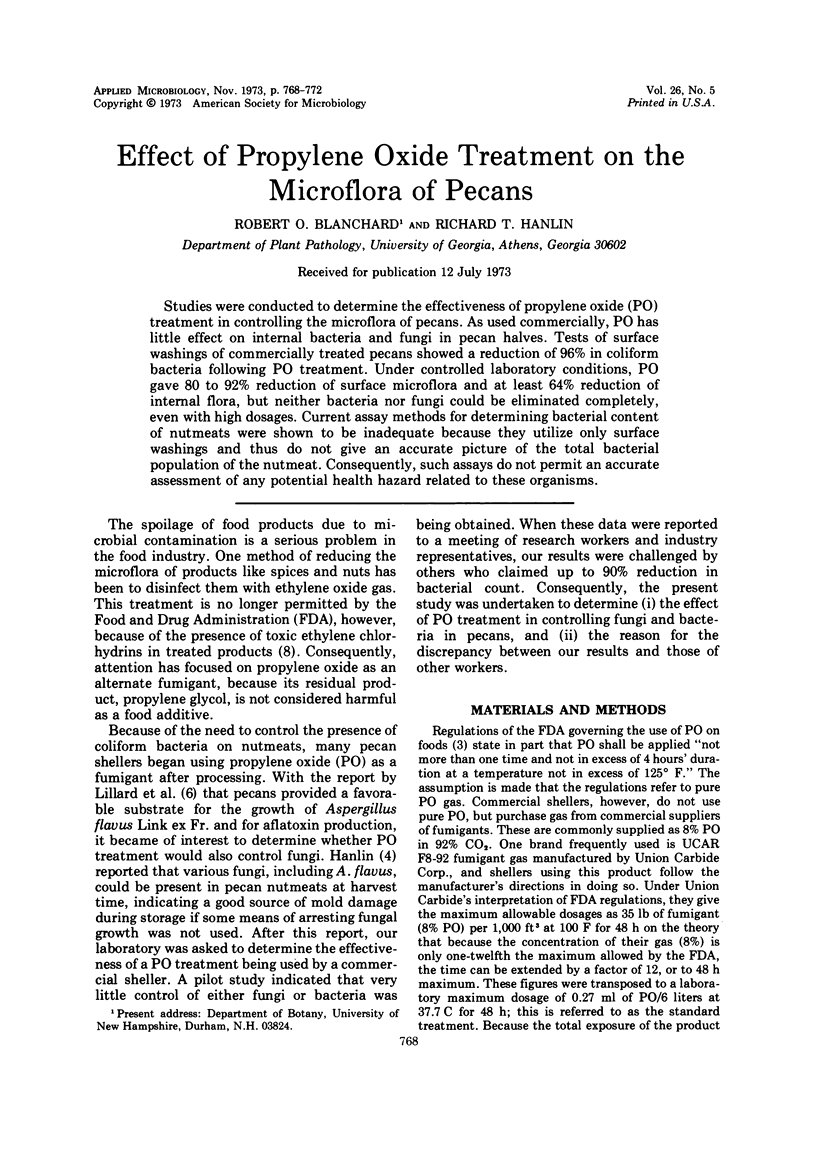
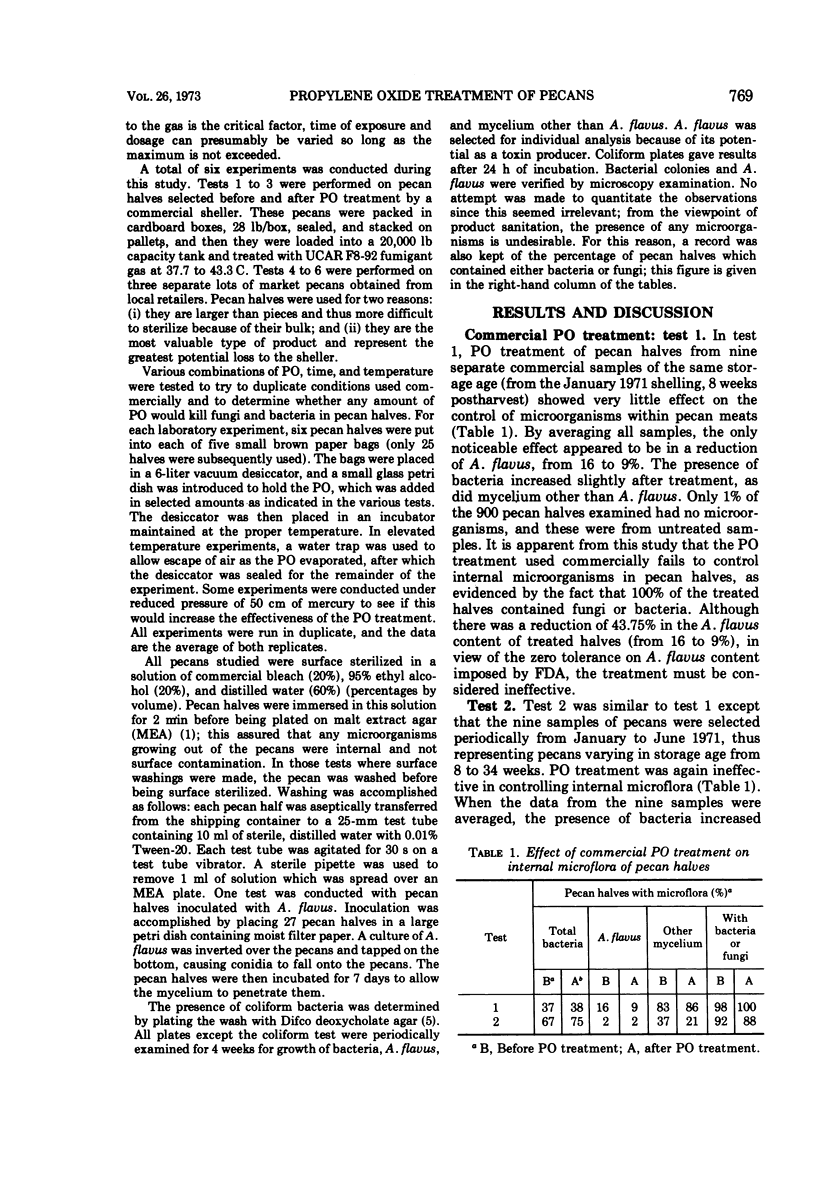
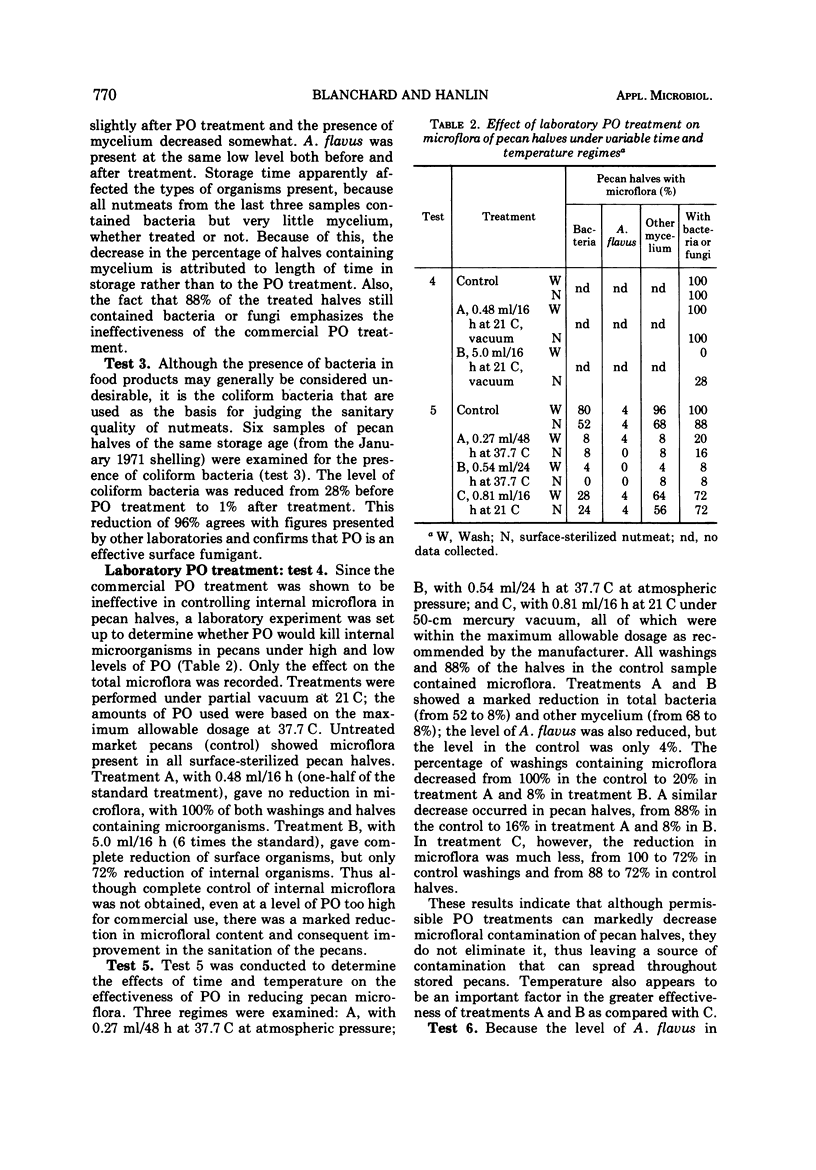
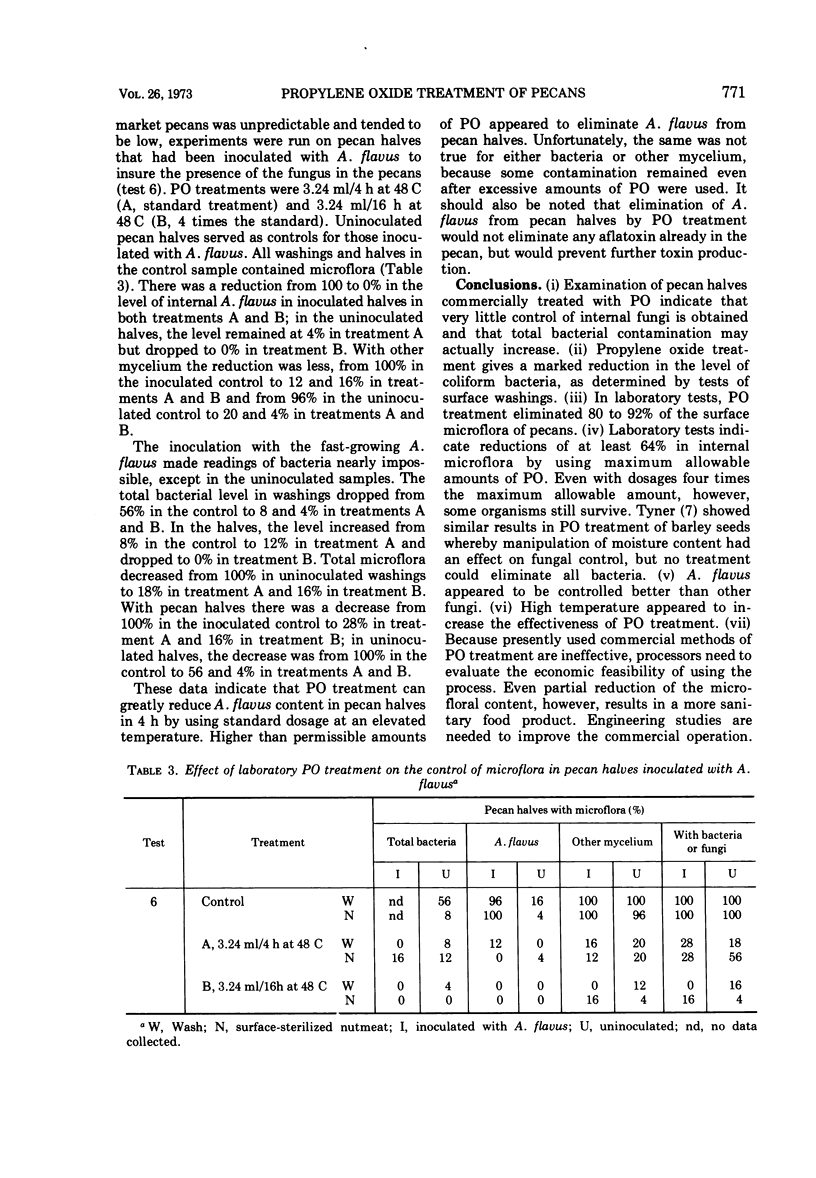
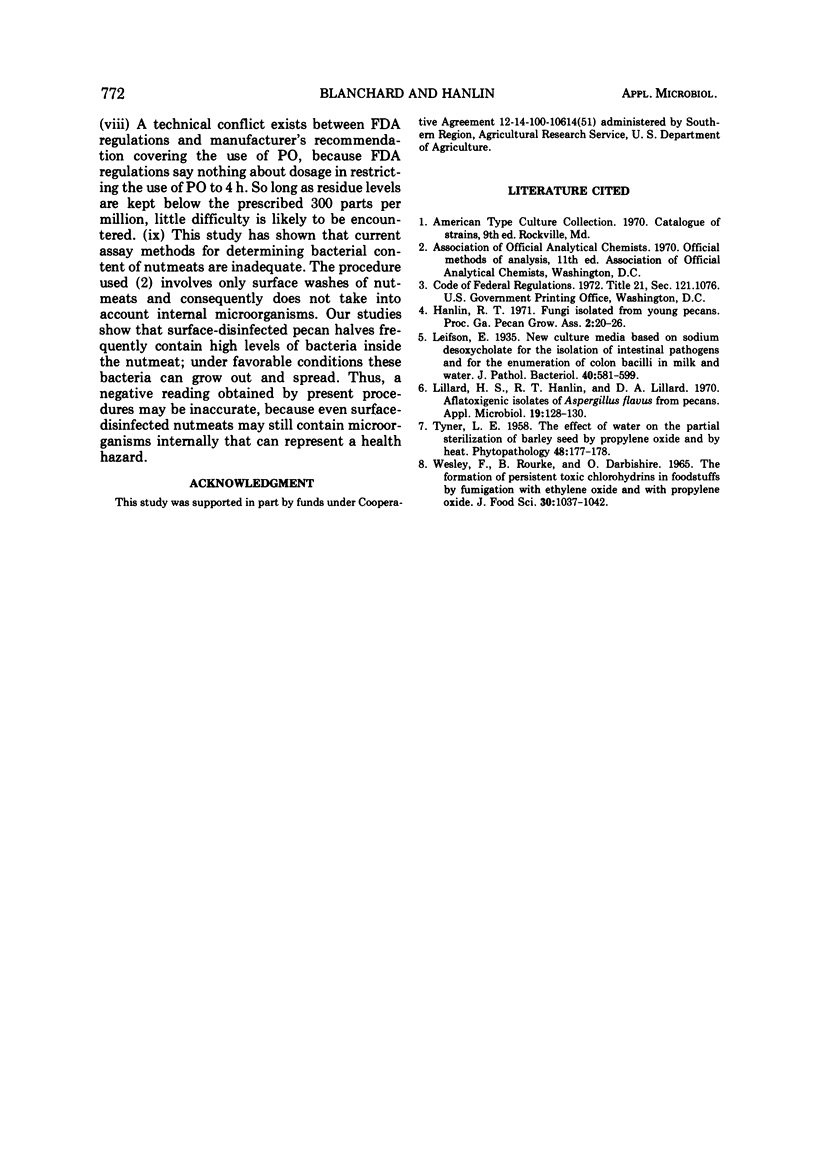
Selected References
These references are in PubMed. This may not be the complete list of references from this article.
- Lillard H. S., Hanlin R. T., Lillard D. A. Aflatoxigenic isolates of Aspergillus flavus from pecans. Appl Microbiol. 1970 Jan;19(1):128–130. doi: 10.1128/am.19.1.128-130.1970. [DOI] [PMC free article] [PubMed] [Google Scholar]


